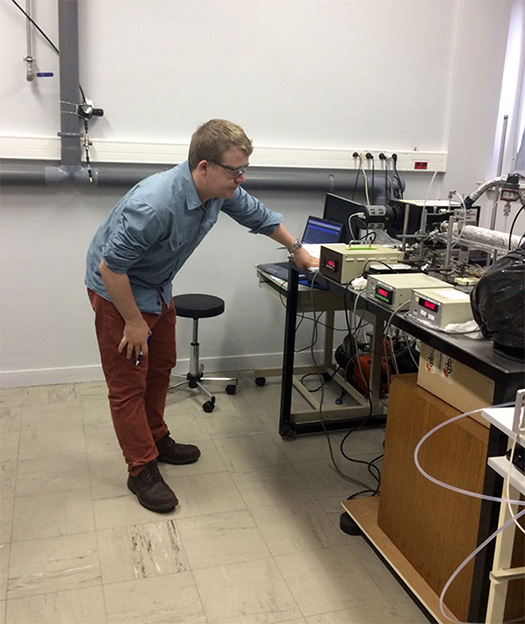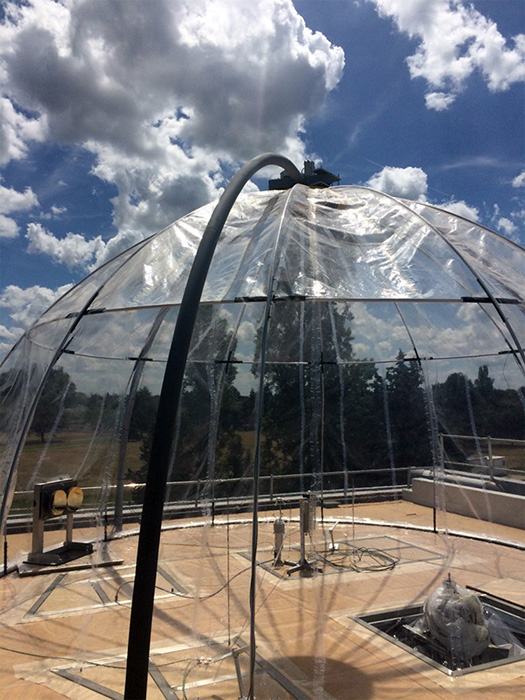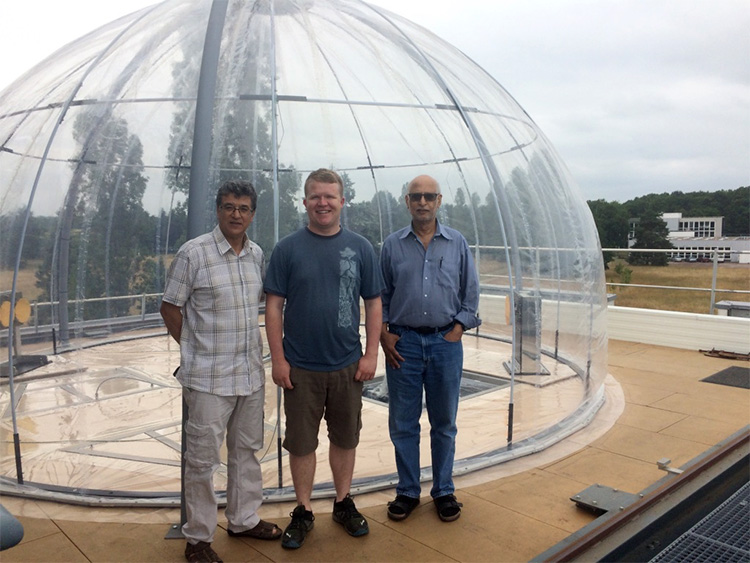Jared Brewer uses ASCENT fellowship to do cutting-edge research in France
Jared Brewer, advised by Emily Fischer and A.R. Ravishankara, was awarded an ASCENT travel fellowship in March 2017. The fellowship supported his two-month stay this summer in Orleans, France, where he studied atmospheric chemistry at a unique research facility. The Department of Atmospheric Science Assisting Students, Cultivating Excellence, Nurturing Talent (ASCENT) program was founded in fall 2014 to help enrich the graduate experience. One component of ASCENT is an international travel grant that allows students to pursue opportunities for research outside the U.S.
Jared explains how he used the ASCENT travel grant:
With the support of the ASCENT award as well as an additional EUROCHAMP-2020 research grant, I spent this summer at the Institut de Combustion Aérothermique Réactivité et Environment (ICARE), a CNRS laboratory, in Orleans, France investigating the quantum yields of the carbonyl species, Methyl Ethyl Ketone (MEK). Like acetone, MEK is important in atmospheric chemistry because it has a sufficiently long lifetime (5 days in the case of MEK) to be lofted into the upper troposphere. There, these ketones can be photolyzed, and lead to odd hydrogen (HOx = HO2 + OH) radical production. Thus, the photolysis of these compounds impacts the concentrations and lifetimes of greenhouse gases and other atmospheric pollutants. However, the rates of ketone photolysis are uncertain. In order to quantify them, I used ASCENT fellowship funding to support a two-month period of study during June and July of 2017 using a unique facility located in Orleans, France. During this time, I helped perform outdoor chamber experiments using natural sunlight to measure rates of MEK photolysis as well as bench-top experiments to measure UV absorption cross-sections of MEK at atmospherically relevant wavelengths and temperatures. This data will help improve the modeling of these compounds, and therefore our understanding of the upper troposphere radical budget, upper troposphere ozone production, and lifetimes of pollutant and greenhouse gases.
In Orleans, I worked with my advisor, Dr. Ravishankara, as well as the director of ICARE Dr. Abdelwahid Mellouki. The work enhanced my graduate research experience by giving me the opportunity to get practical research knowledge in a laboratory setting. My prior research during my master’s degree and during the first two years of my doctoral study at CSU focused primarily on computer modeling. By working with Dr. Mellouki and the people in his laboratory, I gained much needed exposure to laboratory research skills and greatly increased my ability to contribute to the field of atmospheric chemistry. As someone with no chemistry lab experience prior to this study, the opportunity to do cutting-edge research using a one-of-a-kind atmospheric chamber was hugely valuable to my progress as a researcher. Moreover, the insights into experimental methods that I gained by first-hand laboratory experience will make me a better modeler and more complete atmospheric chemist going forward. I had a fantastic and informative time working in Orleans – thank you to the ASCENT program for this awesome opportunity.
University Distinguished Professor A.R. Ravishankara, who co-advises Jared and worked with him at ICARE, said the ASCENT program benefits both the visiting student and host scientists.
“ASCENT is an amazing catalyst that enables our students to experience a very diverse and different learning environment and produce cutting-edge science. … Not only did Jared learn from his experience by doing experimental work, he also gave a lot to the students and post-docs in Orleans by teaching them how to use the Master Chemical Mechanism codes (MCM). This was extremely useful for the scientists in ICARE. Again, you can see that ASCENT not only enhances the student from CSU but also the scientists in the host institution.”
Ravishankara added that there are other, intangible benefits to the program:
“The social aspect of this is immeasurable. I am sure that this two-month stay will be with Jared for life, and the people in Orleans got a lot from his presence there – an experience they will keep forever. It really builds international collaboration and cooperation.”
Photo at top: From left, Abdelwahid Mellouki, Jared Brewer and A. R. Ravishankara at ICARE in Orleans, France.

Jared Brewer measures MEK’s absorbance of light.

HELIOS dome



